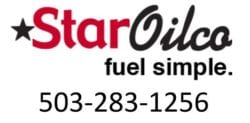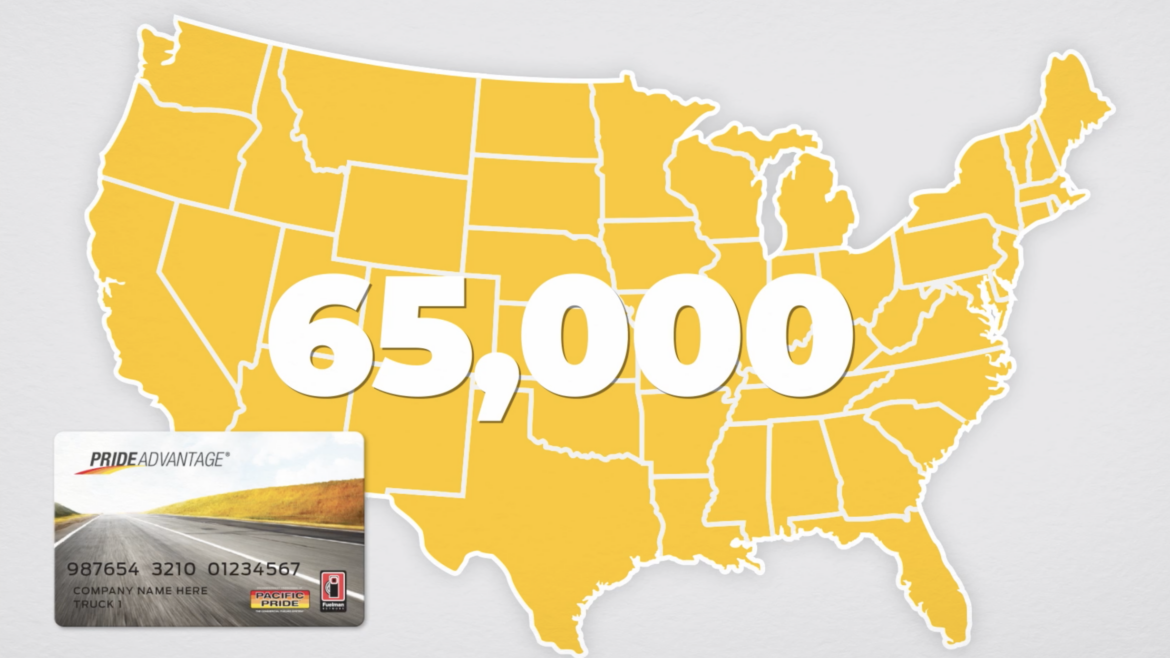BioDiesel Feedstocks – Evening Primrose & Fish Oil
The two feedstocks we are looking into this time are Evening-Primrose Oil and Fish Oil. Here is a link to the main page of feedstocks we have examined so far. As we continue our deeper look into different types of feedstock that Renewable Energy Group (REG) studied in 2009 in the Feedstock and Biodiesel Characteristics Report.
Evening-Primrose Oil
The Common Evening-primrose (Oenothera biennis) is also known as evening star, sun drop, German rampion, weedy evening primrose, hog weed, King’s cure-all, or fever-plant. This plant is native to North America and grows throughout most of the continental US and in Canada. 
A unique aspect of this plant is that it has a bright yellow flower blooms that is open in the evening and then is closed at noon.(source) This plant can grow up to 6 feet tall and is a biennial, meaning it lives for 2 years flowering the second year. The plant has leafy branched stems that are ridged and usually has fine white hair.
According to Friends of the wild flower:
“The leaves are both basal and stem. Basal leaves taper to short stalks and form a rosette in the first year of growth. The stem leaves develop the second year when the flowering stem rises; they are alternate, lance-like, wavy edged, slightly toothed, slightly hairy on both surfaces, with one main central vein and fine laterals. They can be up to 8 inches long near the base and 1/4 as wide, but become considerable shorter near the top of the stem.”
A simple google search shows that this plant has medicinal uses, known by some of the indigenous tribes of North America for hundreds of years. Some of the common uses were to treat bruises with a poultice and use the leaves in a tea as a stimulant. The drug in the plant can be used as a sedative and and as an astringent. The oil the plant produces is full of fatty acids and is sold as a dietary supplement.
The roots of the plant can also be boiled and eaten if they haven’t flowered yet. The leaves of the plant can be used before flowering in salads. Even the flowers can be eaten and are said to have a sweet taste.
The ability of the plant to grow in arid conditions and not need a lot of water adds potential of this plant to provide nutrients, oil and medicinal material for drier locations.
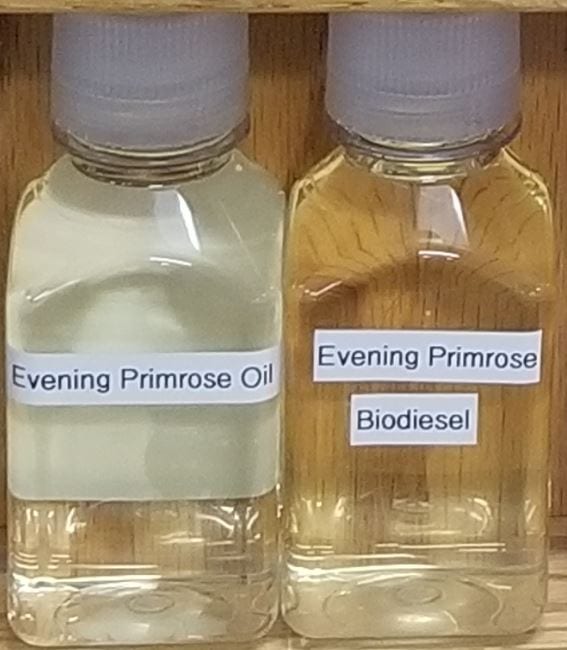
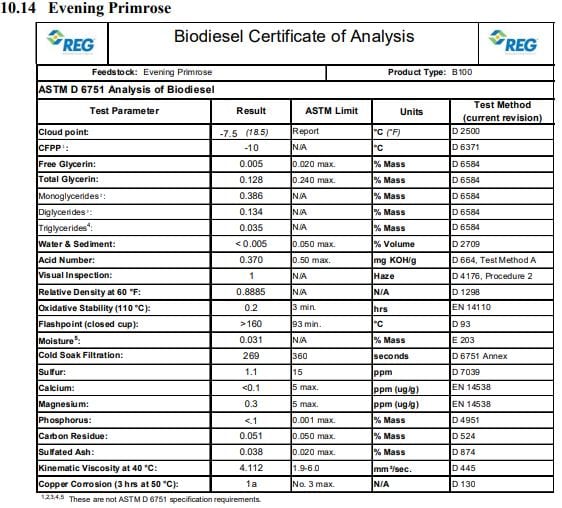
Fish Oil
The Fish Oil that REG used simply says “Fish oil was obtained from a commercially available source in Peru.” The types of fish that are used to make fish oil in Peru are anchovy, herring, menhaden or sardines.
This source was likely the same that would be purchased to produce fish oil nutritional supplements or other food products. In the production of biodiesel there is a large potential for this product. Many of the toxins and imperfections that need to come out for human consumption wouldn’t effect the creation of biodiesel. Fish oil that is produced in the process of fish processing has potential of removing waste from going to landfills. Several scholarly papers have been written on it. If you would like to know a little more this article was written on the waste from salmon processing in Canada.
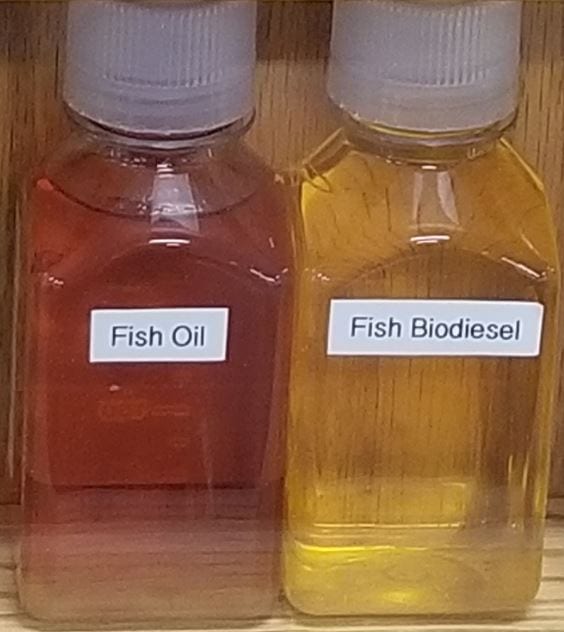
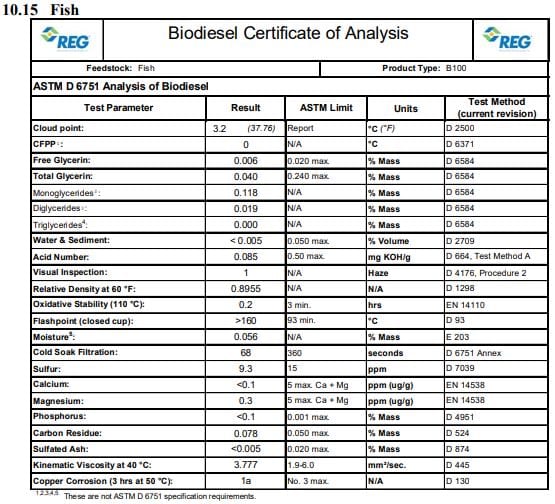
Last article for biodiesel feedstocks was Coconut Oil and Coffee Oil.




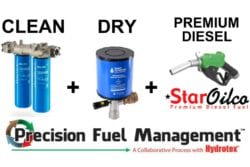


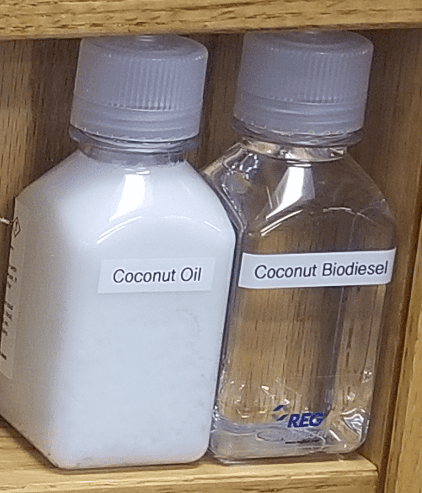
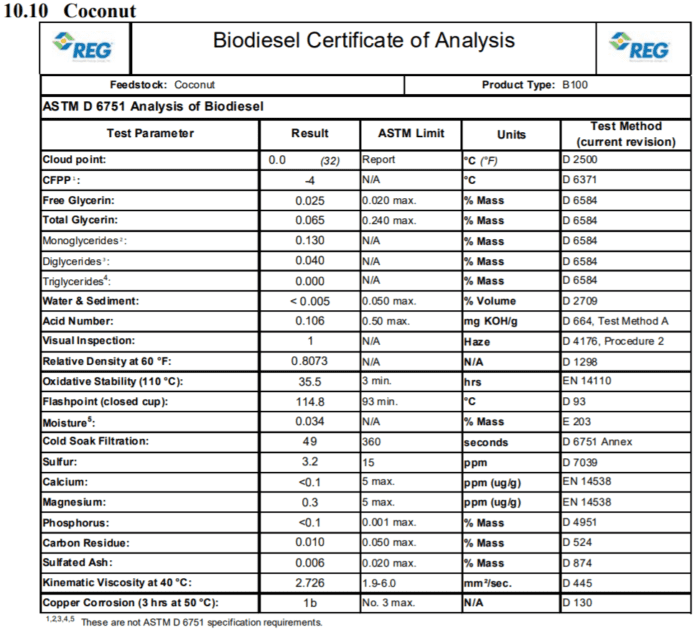
 Coffee comes from roasted coffee beans, these “beans” are actually the seeds from berries of the Coffea species, with the two most common species being C. arabica and C. canephora. People have been drinking coffee since the 15th century. Coffee plants are evergreen shrubs that can grow up to 15 feet tall. They have glossy, dark-green leaves about 4 to 6 inches long. Brazil, Vietnam, and Colombia are were most of the coffee is coming from.
Coffee comes from roasted coffee beans, these “beans” are actually the seeds from berries of the Coffea species, with the two most common species being C. arabica and C. canephora. People have been drinking coffee since the 15th century. Coffee plants are evergreen shrubs that can grow up to 15 feet tall. They have glossy, dark-green leaves about 4 to 6 inches long. Brazil, Vietnam, and Colombia are were most of the coffee is coming from.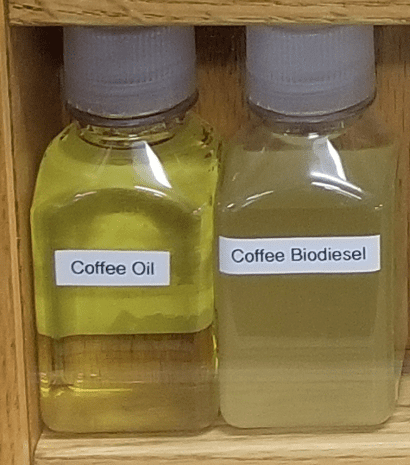
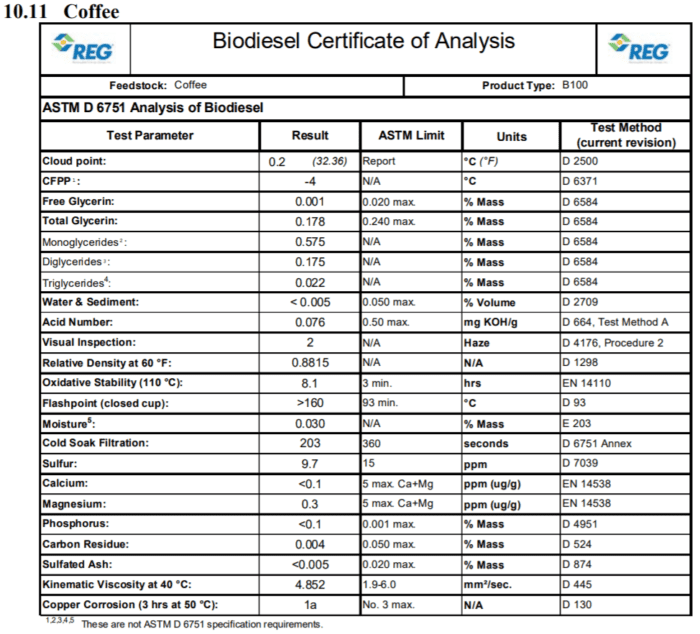

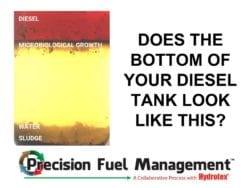
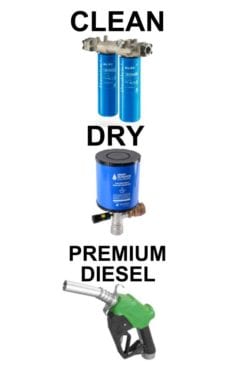
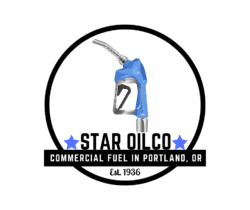


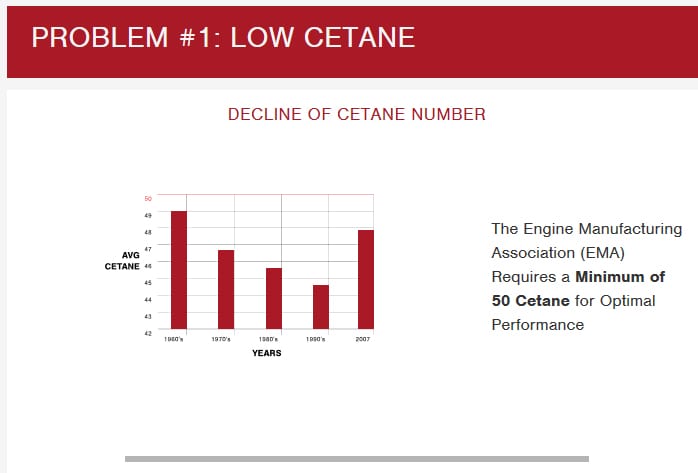
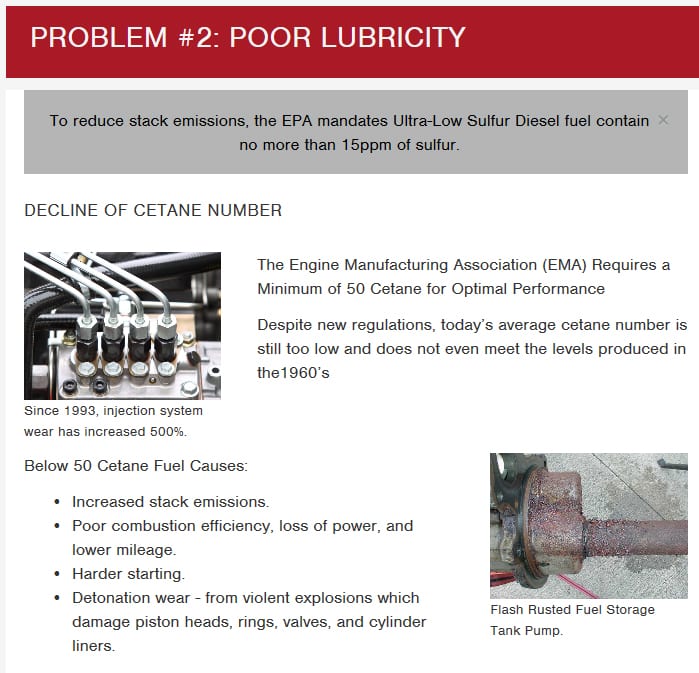
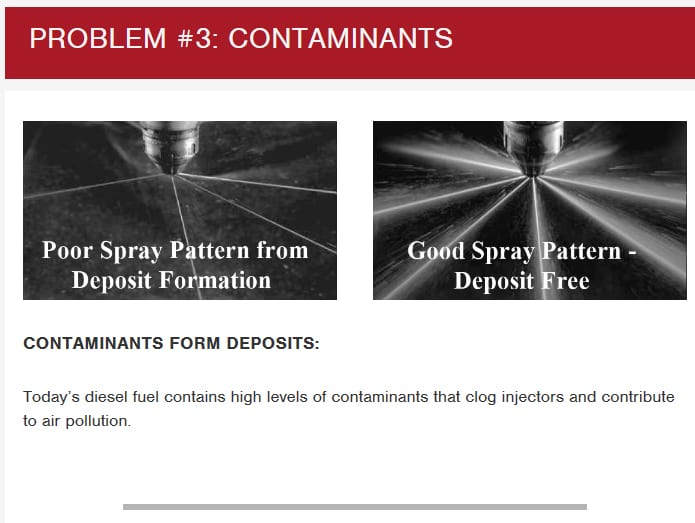
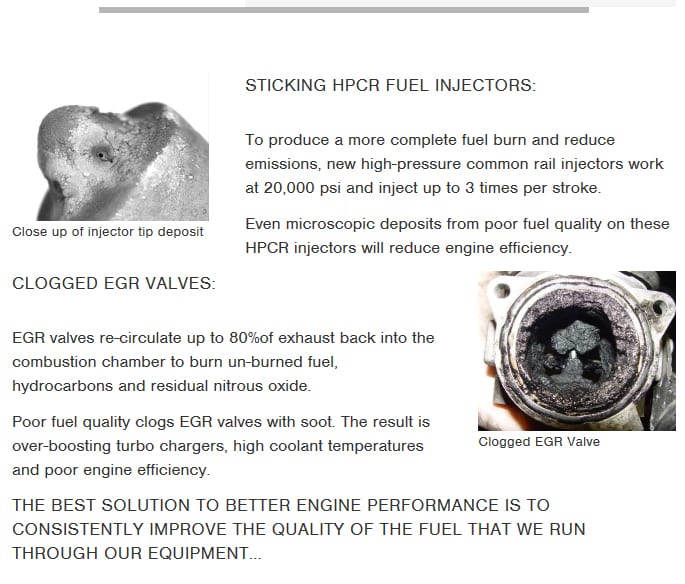
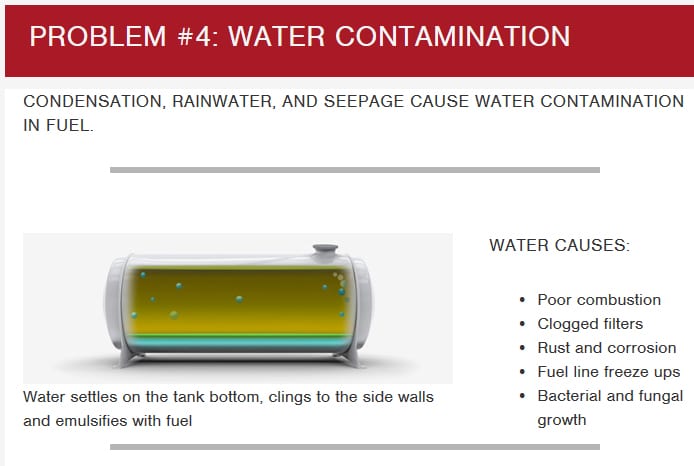
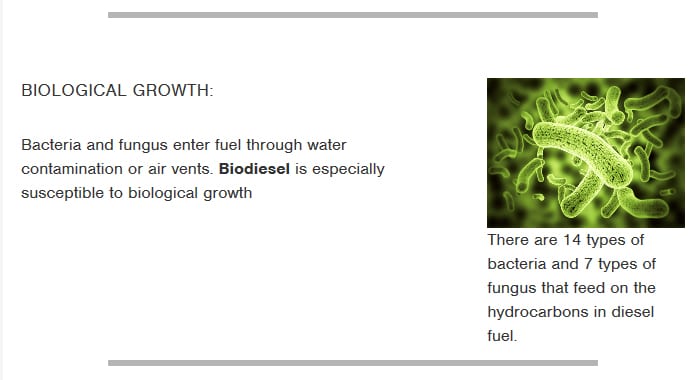
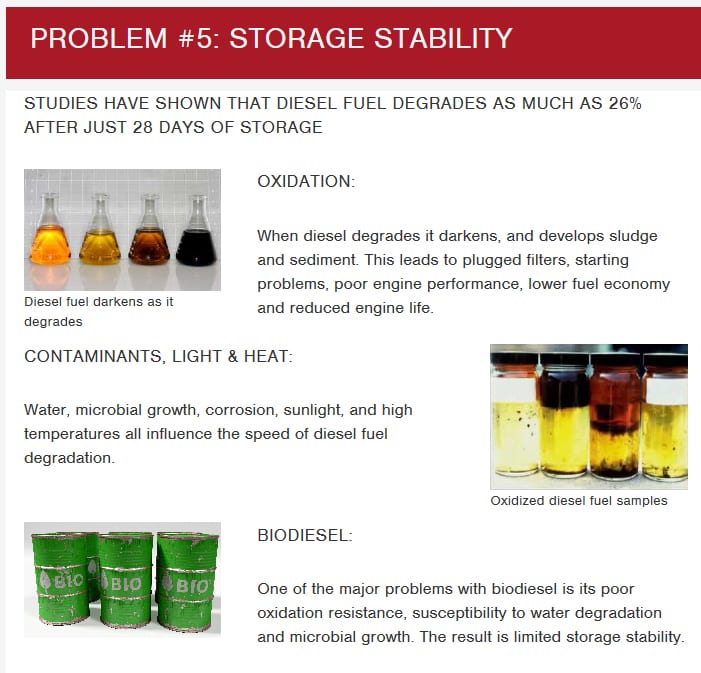
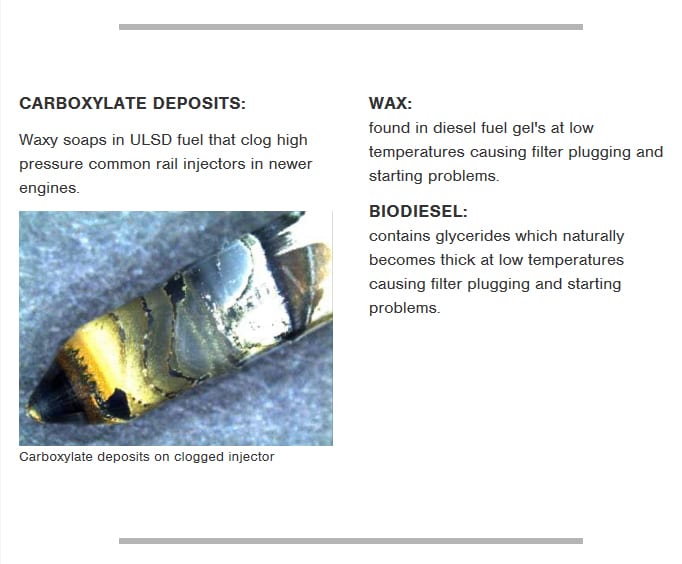
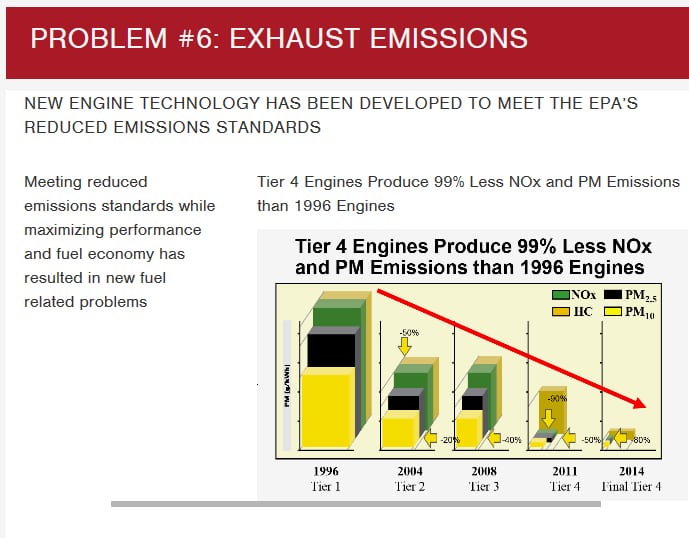


 Ricinus communis is a fast-growing shrub type plant that can reach the size of a small tree. This perennial flowering plant is native to the southeastern Mediterranean Basin, Eastern Africa, and India, but grows easily throughout tropical regions. It is not a cold hardy plant, although in a suitable environment it can become invasive. Castor bean plants are grown as ornamental plants throughout the world and are used extensively as a decorative plant in parks and public areas. The castor bean plan will grow rapidly in a single season, about 6-10’ tall. Ornamentally, it is most valued for its huge, palmately (having four or more lobes or leaflets radiating from a single point) 5-11 pointed lobes, toothed, glossy green leaves (each to 1-3’ across) and round, spikey, reddish-brown seed capsules. Small cup-shaped, greenish-yellow apetalous (lacking flower petals) spikes which are not particularly showy. Different cultivations of the plant result in dwarf and large plants, some with attractive reddish, bronze or purple leaves and bright and colorful flowers.
Ricinus communis is a fast-growing shrub type plant that can reach the size of a small tree. This perennial flowering plant is native to the southeastern Mediterranean Basin, Eastern Africa, and India, but grows easily throughout tropical regions. It is not a cold hardy plant, although in a suitable environment it can become invasive. Castor bean plants are grown as ornamental plants throughout the world and are used extensively as a decorative plant in parks and public areas. The castor bean plan will grow rapidly in a single season, about 6-10’ tall. Ornamentally, it is most valued for its huge, palmately (having four or more lobes or leaflets radiating from a single point) 5-11 pointed lobes, toothed, glossy green leaves (each to 1-3’ across) and round, spikey, reddish-brown seed capsules. Small cup-shaped, greenish-yellow apetalous (lacking flower petals) spikes which are not particularly showy. Different cultivations of the plant result in dwarf and large plants, some with attractive reddish, bronze or purple leaves and bright and colorful flowers. 
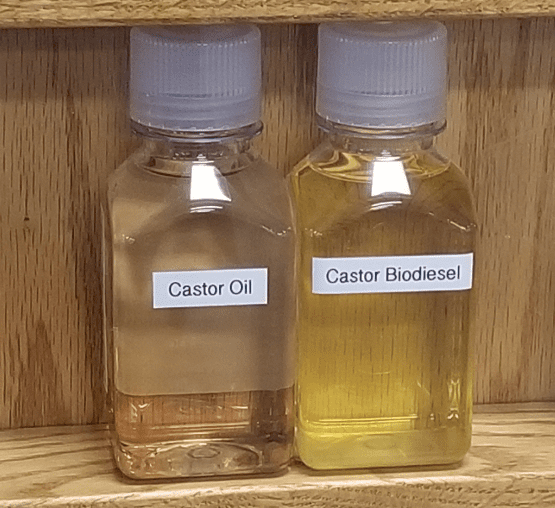
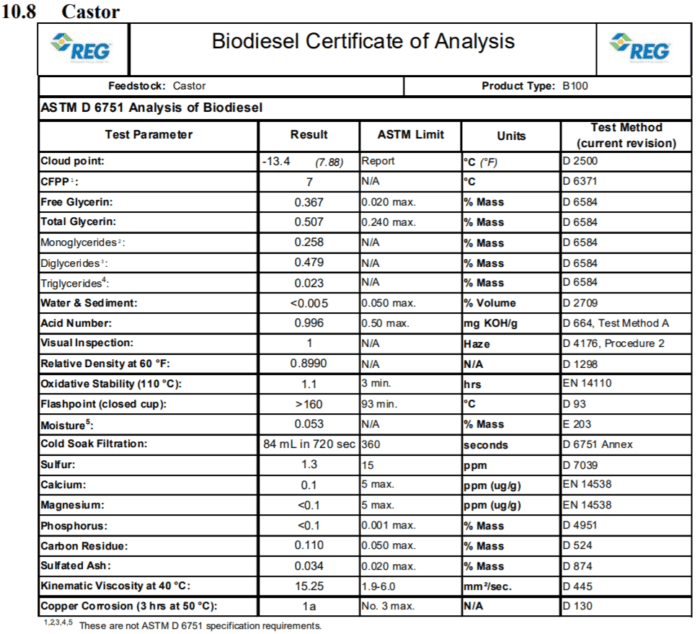
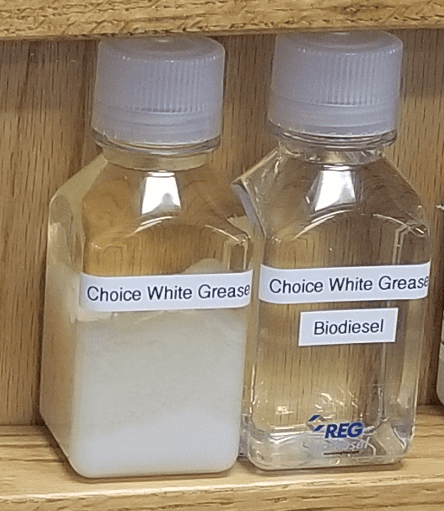
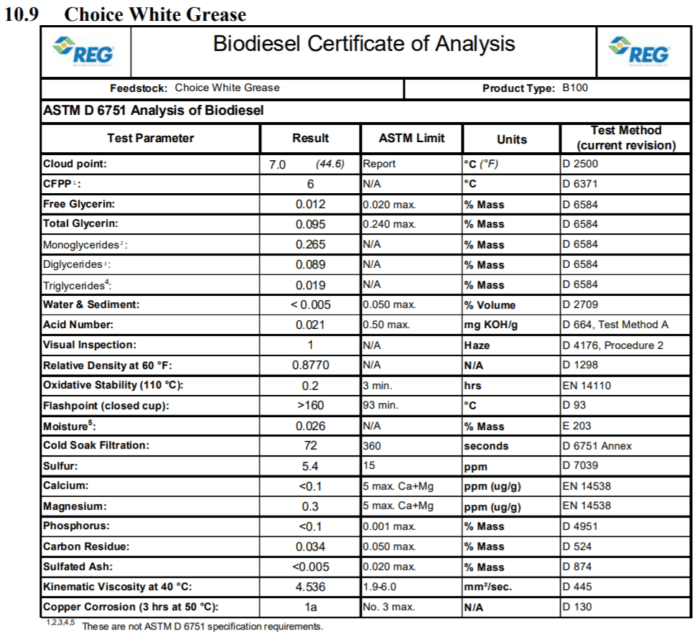
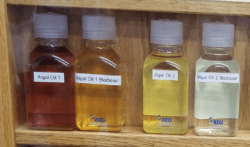


 Brassica Napus is also known as rape or rapeseed. The name rape is derived from the Latin word for turnip, rapum. Brassicaceae is the family of which mustard, cauliflower and cabbage belong. The name Canola comes from the contraction of Canada and ola, meaning oil. Developed in 1970s by researchers from the University of Manitoba and Agri-Food Canada, the use of the term Canola means that the oilseed meets certain standards.
Brassica Napus is also known as rape or rapeseed. The name rape is derived from the Latin word for turnip, rapum. Brassicaceae is the family of which mustard, cauliflower and cabbage belong. The name Canola comes from the contraction of Canada and ola, meaning oil. Developed in 1970s by researchers from the University of Manitoba and Agri-Food Canada, the use of the term Canola means that the oilseed meets certain standards. 

 The starflower is easily grown in average, dry to medium moisture, well-drained soils in full sun to light shade. In addition this plant tolerates poor soils and drought. It is native to Mediterranean region and is an annual that will continue to propagate itself in a garden by reseeding. The plant grows to 2 to 3 feet tall and the flowers are commonly blue, although pink and white flowers are commonly cultivated. The flowering season is relatively long from June to September and in milder climates the starflower will bloom for most of the year.
The starflower is easily grown in average, dry to medium moisture, well-drained soils in full sun to light shade. In addition this plant tolerates poor soils and drought. It is native to Mediterranean region and is an annual that will continue to propagate itself in a garden by reseeding. The plant grows to 2 to 3 feet tall and the flowers are commonly blue, although pink and white flowers are commonly cultivated. The flowering season is relatively long from June to September and in milder climates the starflower will bloom for most of the year.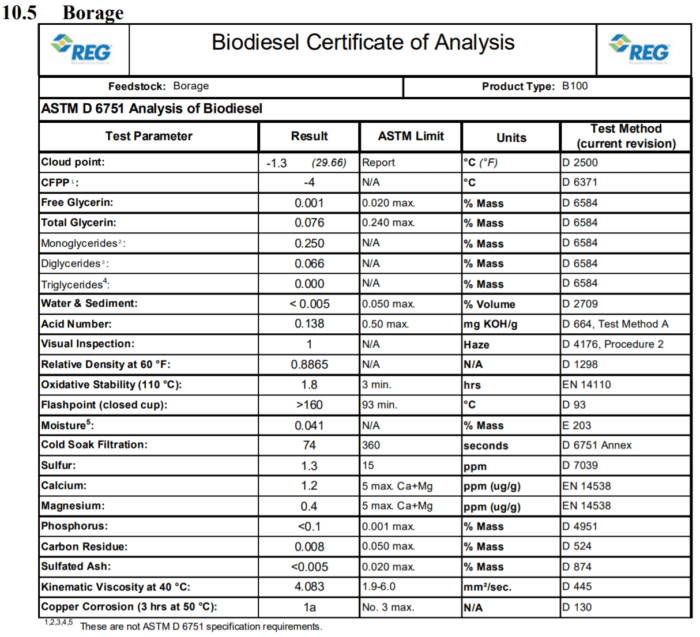

 This flowering plant is native to Europe and Central Asian areas. Camelina plants grow from 1 to 3 feet tall, are heavily branched and produce seed pods with many small, oily seeds. Some varieties of camelina contain 38-40 % oil. Camelina can be grown in arid conditions and does not require significant amounts of fertilizer.
This flowering plant is native to Europe and Central Asian areas. Camelina plants grow from 1 to 3 feet tall, are heavily branched and produce seed pods with many small, oily seeds. Some varieties of camelina contain 38-40 % oil. Camelina can be grown in arid conditions and does not require significant amounts of fertilizer.
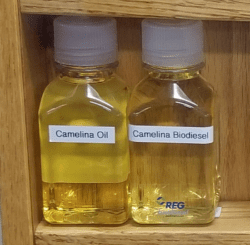
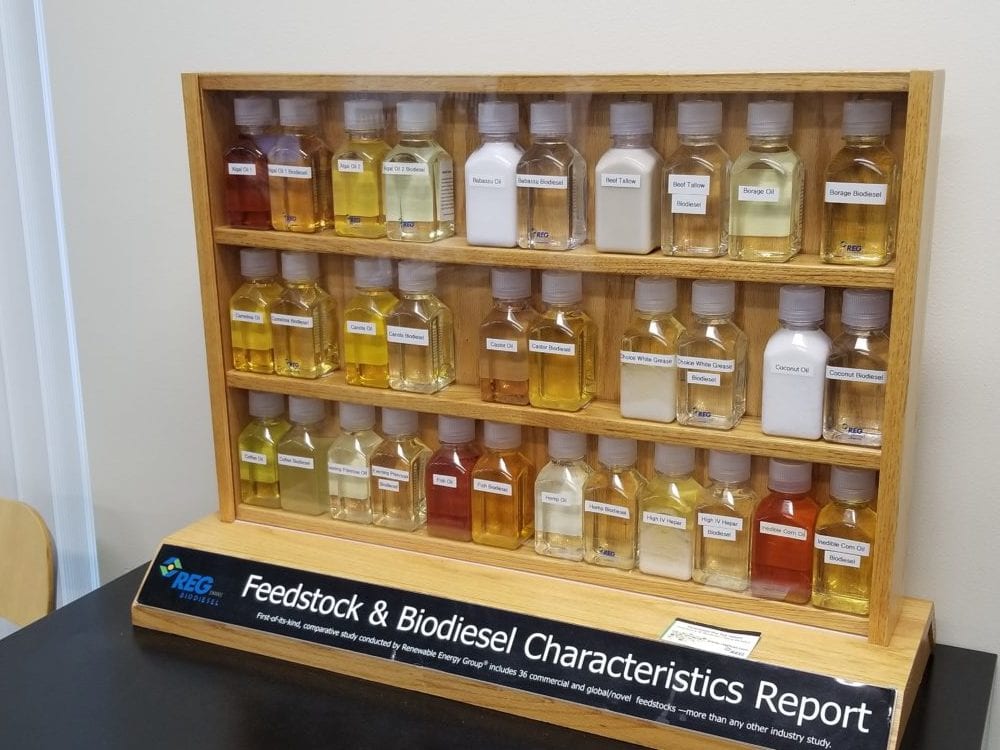
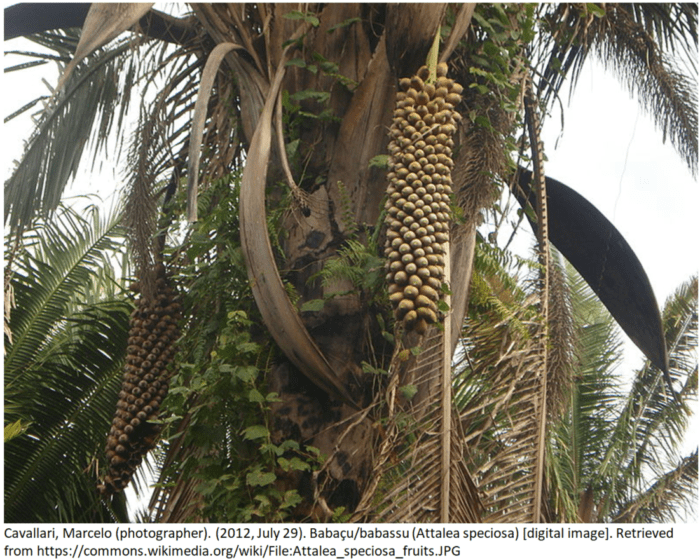

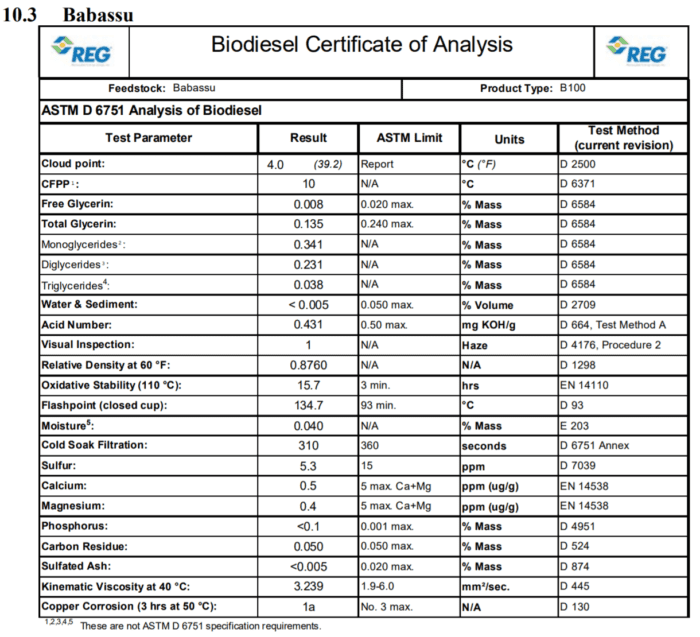

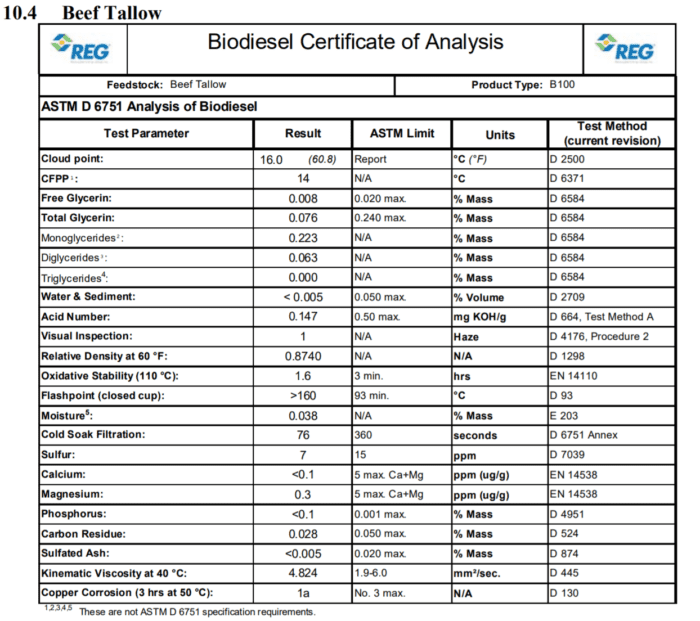

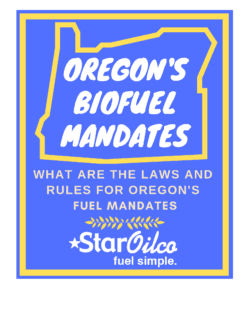 Oregon law has a 5% Biodiesel and 10% Ethanol fuel blend mandate.
Oregon law has a 5% Biodiesel and 10% Ethanol fuel blend mandate.